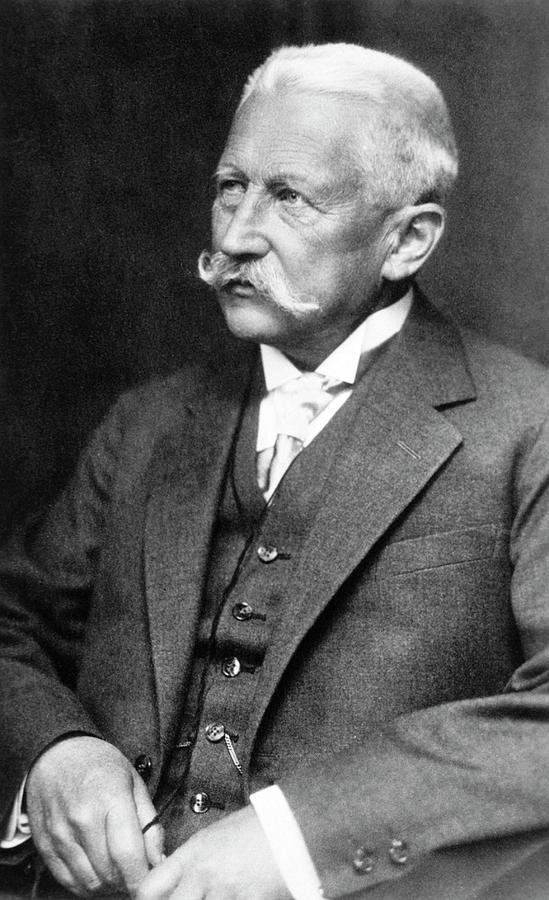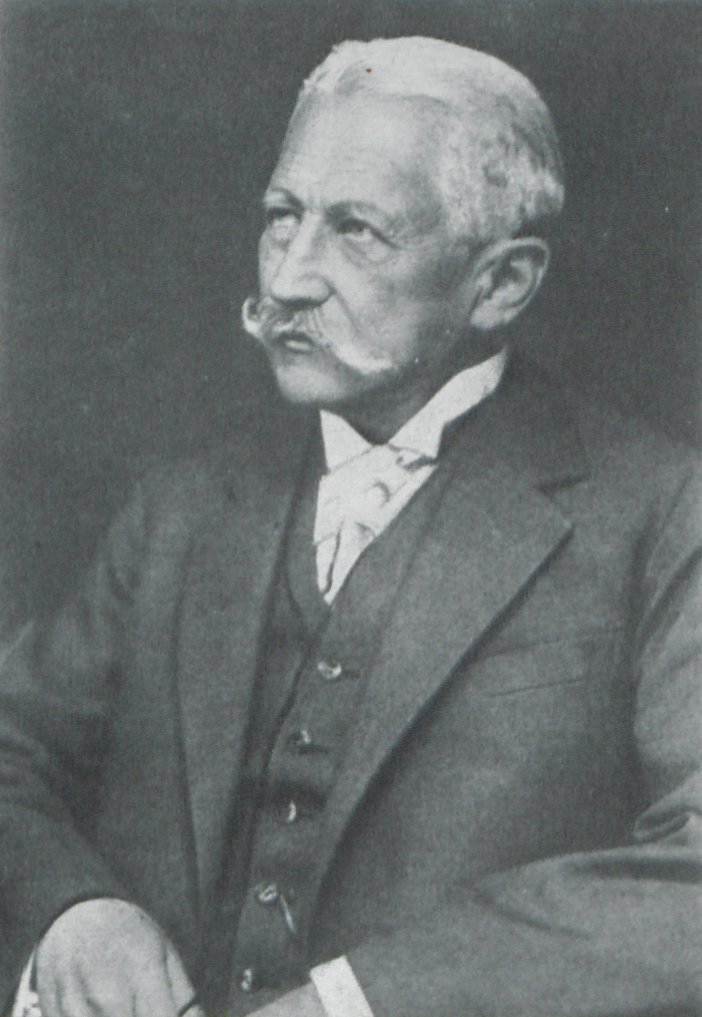Who Was Richard Pfeiffer? Discoveries & Legacy Unveiled
Have you ever wondered about the unsung heroes of medical science, those individuals whose relentless pursuit of knowledge has shielded us from the invisible threats that plague humanity? Richard Pfeiffer stands as a towering figure in this realm, a pioneer whose groundbreaking discoveries in bacteriology not only reshaped our understanding of infectious diseases but also paved the way for life-saving vaccines and therapies.
Richard Pfeiffer, a German physician and bacteriologist, carved his name into the annals of medical history through a series of remarkable achievements. His investigations into the microbial world led to the discovery of bacteriolysis, a phenomenon where bacteria are destroyed by dissolution. He also identified endotoxins, potent toxins released by bacteria, and developed a typhoid vaccination, a critical tool in combating this deadly disease. Furthermore, Pfeiffer successfully isolated Haemophilus influenzae and Micrococcus catarrhalis, contributing significantly to our understanding of respiratory infections. His dedication to scientific advancement led him to collaborate with the renowned Robert Koch in India and Italy, further expanding his knowledge and influence in the field.
| Category | Information |
|---|---|
| Full Name | Richard Pfeiffer |
| Birth Date | March 27, 1858 |
| Birth Place | Zduny, Posen (now Poland) |
| Nationality | German |
| Occupation | Physician, Bacteriologist |
| Education | Gymnasium at Schweidnitz, Medical studies |
| Known For | Discovery of Bacteriolysis (Pfeiffer's Phenomenon), Endotoxins, Typhoid Vaccination, Isolation of Haemophilus influenzae |
| Key Collaborations | Robert Koch |
| Major Contributions | Revolutionized understanding of bacterial infections and immunity, development of diagnostic and preventative measures. |
| Reference Link | Wikipedia - Richard Pfeiffer |
Pfeiffer's most notable contribution to bacteriology is undoubtedly his elucidation of bacteriolysis, often referred to as "Pfeiffer's phenomenon." This process involves the destruction of bacteria through dissolution, typically observed after introducing specific sera, antibodies, or hypotonic solutions into host animals. His meticulous experiments revealed the intricate mechanisms by which the immune system combats bacterial invaders, providing invaluable insights into the development of targeted therapies.
- The Chilling Case Of Charles Starkweather Spree Killer Legacy
- Panama City Skyline See Why Its So Impressive Now
In 1892, Richard Pfeiffer achieved another milestone when he isolated what he believed to be the causative agent of influenza. He named it Bacillus influenzae, now known as Haemophilus influenzae. Although it was later discovered that influenza is caused by a virus, Pfeiffer's work was initially widely accepted. This highlights the dynamic nature of scientific discovery, where initial findings can pave the way for future breakthroughs, even if the original hypothesis is later refined. Early attempts to create a vaccine during the devastating 1918 influenza pandemic were rooted in Pfeiffer's initial identification of Bacillus influenzae. While these efforts proved ultimately unsuccessful, they underscored the urgency of developing effective countermeasures against infectious diseases and the importance of ongoing research to unravel their complexities.
It's important to note that the name "Richard Pfeiffer" may also refer to Richard William Pfeiffer, an American LGBT rights activist. Born in Chicago, he dedicated his life to advocating for the rights and equality of the LGBTQ+ community. He coordinated the Chicago Pride Parade for an impressive fifty years, transforming it into a vibrant celebration of diversity and inclusion. His tireless efforts and unwavering commitment made him a beloved figure in the LGBTQ+ community and a champion for social justice.
Richard William Pfeiffer watched Chicagos first pride parade in 1970 from the sidelines, too shy to join in the march. By the parades fifth year, the local LGBTQ activist had become its lead, directing the parade since 1974 until his death. His contributions to various gay activist organizations further solidified his legacy as a tireless advocate for LGBTQ+ rights. He passed away on a Sunday after a courageous battle, leaving behind a community forever grateful for his dedication and leadership.
- Christopher Cousins Breaking Bad Star More Trivia
- Man Holding Sign Ideas Memes More Find Your Perfect Sign
The investigations conducted by Richard Pfeiffer into bacterial infections also led to his discovery of bacterial endotoxins. These toxins, released upon the disintegration of bacterial cells, trigger a range of inflammatory responses in the host organism. Pfeiffer's work on endotoxins was crucial in understanding the pathogenesis of various infectious diseases and developing strategies to mitigate their harmful effects.
Richard Pfeiffer's early life laid the foundation for his illustrious career. Born on March 27, 1858, in Zduny, Posen (now part of Poland), he was the eldest son of Otto Pfeiffer, a clergyman. His family later moved to Schweidnitz, where he received his early education. He excelled in his studies, graduating from the gymnasium at the young age of 17. From an early age, Pfeiffer harbored a deep-seated ambition to study the natural world, setting him on a path towards scientific exploration and discovery.
The impact of Richard Pfeiffer's research extends far beyond the confines of the laboratory. His discoveries have had a profound influence on the diagnosis, treatment, and prevention of infectious diseases. The typhoid vaccine he developed has saved countless lives, and his work on bacteriolysis and endotoxins has provided a deeper understanding of the complex interactions between bacteria and the human immune system. His legacy continues to inspire generations of scientists and healthcare professionals to pursue innovative solutions to combat the ever-evolving challenges posed by infectious agents.
While the name Richard Pfeiffer is primarily associated with the renowned bacteriologist, it's worth acknowledging the existence of other individuals who share the same name and have made significant contributions in their respective fields. Richard Pfeiffer (born 1944) is a politician, while another Richard Pfeiffer is recognized for his work in the consulting engineering profession. This Pfeiffer is a native New Mexican and a graduate of New Mexico State University, boasting over 18 years of experience in his field. He is an active member of professional organizations and has served as president of the American Society of Civil Engineers, demonstrating his commitment to excellence and leadership in the engineering community.
The story of Richard Pfeiffer serves as a powerful reminder of the transformative potential of scientific inquiry and the importance of recognizing the contributions of those who dedicate their lives to advancing human knowledge. His work has had a lasting impact on medicine and public health, and his legacy will continue to inspire future generations of scientists and healthcare professionals. From his groundbreaking discoveries in bacteriology to his tireless advocacy for LGBTQ+ rights, the name Richard Pfeiffer embodies a spirit of innovation, dedication, and unwavering commitment to making the world a better place.
In 1892, the dedicated German scientist, Richard Pfeiffer, meticulously isolated a tiny bacterium from nasal samples collected from flu patients. This groundbreaking discovery led him to christen it 'bacillus influenzae'. Despite later revelations that influenza is viral, Pfeiffer's initial hypothesis influenced early vaccine development during the 1918 pandemic. It wasn't until the 1930s, with the proper identification of the influenza virus, that true advancement in influenza prevention could begin.
The German bacteriologist Richard Pfeiffer's work was not limited to influenza and typhoid. He also made significant contributions to our understanding of cholera. Working alongside Robert Koch in India, he investigated the transmission and pathogenesis of this devastating disease. His research provided critical insights into the importance of sanitation and hygiene in preventing cholera outbreaks. His work on cholera, combined with his other accomplishments, solidified his reputation as one of the leading bacteriologists of his time.
Richard Pfeiffer's meticulous approach to scientific investigation is a hallmark of his legacy. He was known for his rigorous experimental designs, careful observations, and thorough analysis of data. His commitment to scientific accuracy and objectivity set a high standard for his colleagues and successors. His meticulousness extended to all aspects of his research, from the preparation of media to the interpretation of results. This dedication to detail ensured the reliability and validity of his findings, contributing to their lasting impact on the field of bacteriology.
The impact of Richard Pfeiffer's work can also be seen in the development of diagnostic tools for infectious diseases. His research on bacterial identification and characterization laid the foundation for the development of rapid and accurate diagnostic tests. These tests are essential for the timely detection and treatment of infections, improving patient outcomes and preventing the spread of disease. His contributions to diagnostics have had a direct and positive impact on public health, enabling healthcare professionals to quickly identify and respond to infectious threats.
Beyond his specific discoveries, Richard Pfeiffer's contributions to the field of bacteriology also include his role in training and mentoring the next generation of scientists. He was a dedicated teacher who inspired his students to pursue careers in research and medicine. Many of his students went on to make significant contributions of their own, carrying on his legacy of scientific excellence. His influence extended beyond his own laboratory, shaping the future of bacteriology and fostering a culture of innovation and collaboration.
The legacy of Richard Pfeiffer is not without its complexities. While his initial identification of Bacillus influenzae as the causative agent of influenza proved to be incorrect, it is important to remember that scientific progress is often a process of trial and error. Pfeiffer's work, even in its initial misidentification, spurred further investigation and ultimately led to the discovery of the influenza virus. His willingness to challenge existing paradigms and pursue novel ideas is a testament to the spirit of scientific inquiry, even when those ideas are later proven to be incomplete.
In conclusion, Richard Pfeiffer was a pioneering figure in the field of bacteriology, whose discoveries have had a lasting impact on medicine and public health. His work on bacteriolysis, endotoxins, typhoid vaccination, and the identification of Haemophilus influenzae has contributed significantly to our understanding of infectious diseases. His legacy continues to inspire generations of scientists and healthcare professionals to pursue innovative solutions to combat the challenges posed by microbial threats. Whether referring to the groundbreaking bacteriologist or the dedicated LGBT rights activist, the name Richard Pfeiffer evokes a sense of dedication, innovation, and unwavering commitment to making a positive impact on the world. His contributions, both in the laboratory and in the community, serve as a testament to the power of human ingenuity and the importance of fighting for a better future.
- Mel Gibson Photos Family Career Highlights You Need To See
- Free Mallard Duck Clipart Vectors Find The Perfect Image Now

Richard Pfeiffer Photograph by National Library Of Medicine

Richard Pfeiffer Store norske leksikon

Richard Friedrich Johannes Pfeiffer Alchetron, the free social